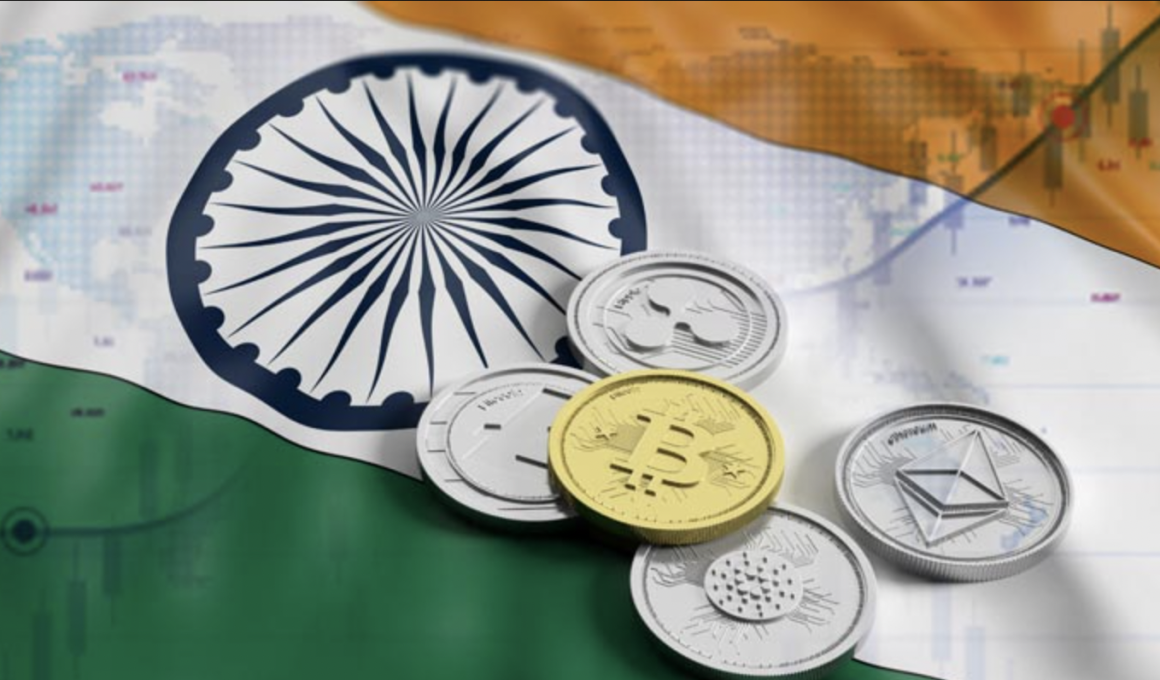The world of cryptocurrency is rapidly growing, and the number of users in this field is projected to reach one billion by 2030.
India is poised to play a major role in this growth story, thanks to several key factors that make it an ideal location for the development of Web3 technology. In this article, we will explore the reasons why India is well-positioned to be a Web3 development powerhouse in the coming years.
Exciting rise of India as a global tech hub
But before we dive into the details of Web3 developments in India, let’s take a closer look at the exciting rise of India as a global tech hub. From a resilient and growing economy to a rapidly expanding middle class that’s projected to become the world’s largest, India’s success story is nothing short of fascinating. Plus, with booming demand for technology products, significant investments in R&D, and access to affordable internet, India’s tech industry is poised for continued growth and innovation. And that’s just the tip of the iceberg.
Here are the 8 key factors driving India’s success as a tech and innovation hub.
India’s Resilient and Growing Economy
Despite the global financial challenges, India’s economy is showing remarkable resilience and growth, thanks to strong macroeconomic fundamentals.
Last year, India’s economy surpassed the United Kingdom’s in terms of size, making it the fifth-largest economy in the world. India’s GDP is expected to grow at a steady rate of 6-7% over the next couple of years, thanks to strong domestic demand.
A Growing Middle-Class That Will Soon Become the Largest in the World
India’s economic expansion has led to the emergence of a thriving middle class, with nearly 55% of the population already considered middle class.
With such rapid growth, India’s middle class is set to become the largest in the world by 2025. With a thriving middle class that could soon rival that of the US, India is poised to be a major player in the global economy by driving digitally influenced consumption.
Indian Middle-Class Driving Demand for Technology
India’s middle class is driving demand for technology products, with nearly one billion Indians projected to be using smartphones by 2030. Digitally influenced consumption is set to become the new norm, with digitally influenced purchases accounting for 40% of transactions by 2030.
According to the World Economic Forum India is expected to see a 4x growth in consumer spending by 2030, with digitally influenced purchases accounting for 40% of transactions. This represents a significant opportunity for tech businesses.
Demand for Technology Accelerating the Pace of Innovation
As demand for technology products increases, so does R&D spending. India is already in the top six R&D spending countries, along with the U.S., China, Japan, Germany, and South Korea.
This has led to a rapid pace of innovation in the country, with India already being a global tech leader.
Access to Affordable Internet
India has one of the cheapest yet most reliable internet services, enabling people from all income levels to access the internet.
Companies like Jio have made it possible, contributing to a staggering increase in overall internet usage. India has over 836 million internet users, with projections estimating that this number will reach a billion by 2025.
A Stable Demography That Will Maintain Consumption Growth for Decades to Come
China is facing a demographical collapse. China’s working-age population peaked in 2014. It’s projected to shrink to less than one-third of that peak by 2100.
But India is an entirely different story. India’s population has already overtaken China’s, and India’s population is young and growing. In 2030, 77% of Indians will be born in the late 1980s and onwards. India is projected to maintain stable demography even in the 2050s, ensuring stable growth for decades to come.
A Stable Democracy with Stable Governance
India’s stable democracy and governance have been instrumental in the country’s progress, with strong leadership ensuring consistent economic growth and development.
India’s commitment to transparency, accountability, and an independent judiciary has created a favorable environment for growth and innovation. India’s reputation as a reliable investment destination is further strengthened by its democratic values and political stability.
India is already a Global Tech Leader
India’s adoption of technology has empowered citizens, streamlined governments, and reduced bureaucratic red tape for businesses. It has enabled close to the entire Indian population to possess a digital ID & access the banking system.
From Sundar Pichai to Satya Nadella to Ajay Banga, Indians are leading global tech industries. Bengaluru is the fastest-growing tech hub globally, even ahead of London. India is the third-largest startup ecosystem in the world, with a combined valuation of USD 450 Billion.
India has made a name for itself in the startup world with its growing number of unicorns. According to a report by Inc42, India has the third-highest number of startups valued at a billion dollars or more, with a total of 100 unicorns.
Financial Inequality in India
Despite several contributing factors to the development of the Indian economy, the issue of financial inequality still plagues the country, leaving a large section of the population excluded from participating in economic growth and entrepreneurship opportunities.
However, blockchain technology has the potential to democratize financial opportunities and level the playing field for millions of people. By providing secure and transparent financial infrastructure, blockchain can enable access to financial services for those previously excluded, promoting a more inclusive financial system.
Unlocking the potential of India’s young people through blockchain-based solutions can initiate the next wave of value creation in India, benefiting not just entrepreneurs but also investors seeking new opportunities.
India and Web3
So, now let’s get into the facts & see why India will be the leading force in Web3 Development
Grassroots Crypto Adoption
India has emerged as a major player in grassroots crypto adoption, ranking fourth globally and ahead of the US in the 2022 Global Crypto Adoption Index by Chainalysis.
The index considered five metrics that reflect retail adoption, including DeFi value received, retail DeFi value received, P2P exchange trade volume, centralized service value received, and retail centralized service value received. India ranked very high in most of these metrics, showcasing the country’s growing appetite for crypto and blockchain-based solutions.
Web3 Startup Ecosystem
India has a thriving Web3 startup ecosystem, with over 450 Web3 startups and four unicorns, according to a study published by the National Association of Software & Services Companies (NASSCOM). India has also received more than $1.3 billion in Web3 investments since 2020.
The impressive rise of Polygon, previously known as Matic Network, exemplifies India’s potential in the Web3 space. The project’s founders, Jaynti Kanani, Sandeep Nailwal, and Anurag Arjun, being from India, inspire many Indian Web3 startups.
The project’s competent development team has gained significant recognition, making it a leading Ethereum scalability solution. The rise of Polygon has also inspired many Indian entrepreneurs to venture into the Web3 space.
Web3 Workforce
India’s skilled workforce is well-positioned to propel innovation and growth in the Web3 space. With over 11% of the global Web3 talent and an expected growth rate of over 120% in the next one to two years, India is a powerhouse of Web3 talent.
The country’s strong education system and focus on STEM fields have produced a talented workforce that can contribute significantly to the Web3 development sector. India’s reputation for being a global technology hub, along with its large and growing Web3 talent pool, makes it an ideal location for Web3 startups looking to expand their operations.
Value add to the Indian GDP
India is well-positioned to benefit from the global Web3 boom, with a projected $1.1 trillion to be added to the country’s GDP over the next decade, according to a NASSCOM study.
This growth is supported by a high adoption rate and a large talent pool. India’s Web3 startups have seen a staggering 37x growth in investments over the past two years, with a low demand-supply gap for talent.
Additionally, the demand-supply gap for talent in India is the lowest compared to the US, China, and the UK, further supporting India’s position in the Web3 development sector.
With all these factors in play, India is poised to make significant contributions to the global Web3 industry while simultaneously fueling economic growth and job creation in the country.
More Regulatory Clarity for Crypto
India’s journey with crypto has been eventful, from outright banning it in 2018 to providing regulatory clarity in 2022.
The Reserve Bank of India’s (RBI) circular in 2018 restricted banks from associating with crypto exchanges, leading to a legal battle. In 2020, the Indian Supreme Court struck down the RBI order, calling it unconstitutional to prohibit trading without any regulations.
In 2021, the government proposed a blanket ban on private currencies. However, in March 2022, the budget bill passed crypto tax regulations, providing more clarity for the emerging crypto ecosystem in India. While crypto laws are still under discussion, the country is moving towards a more regulated and clear environment for Web3 businesses to operate in. This regulatory clarity will benefit not only the Web3 industry but also investors and traders in India, enabling them to participate more confidently in the cryptocurrency market.
Conclusion
India is emerging as a major player in the Web3 development industry, with a thriving ecosystem of startups, a skilled workforce, and a high adoption rate of crypto..
India’s economy, middle class, and demand for technology products are growing at an exponential rate, making it an ideal location for Web3 startups looking to expand their operations. The country’s stable democracy and governance, commitment to transparency, and political stability make it a reliable investment destination, while blockchain technology has the potential to democratize financial opportunities and level the playing field for millions of people.
With regulatory clarity on the horizon, India is poised to make significant contributions to the global Web3 industry while simultaneously fueling economic growth and job creation in the country.









